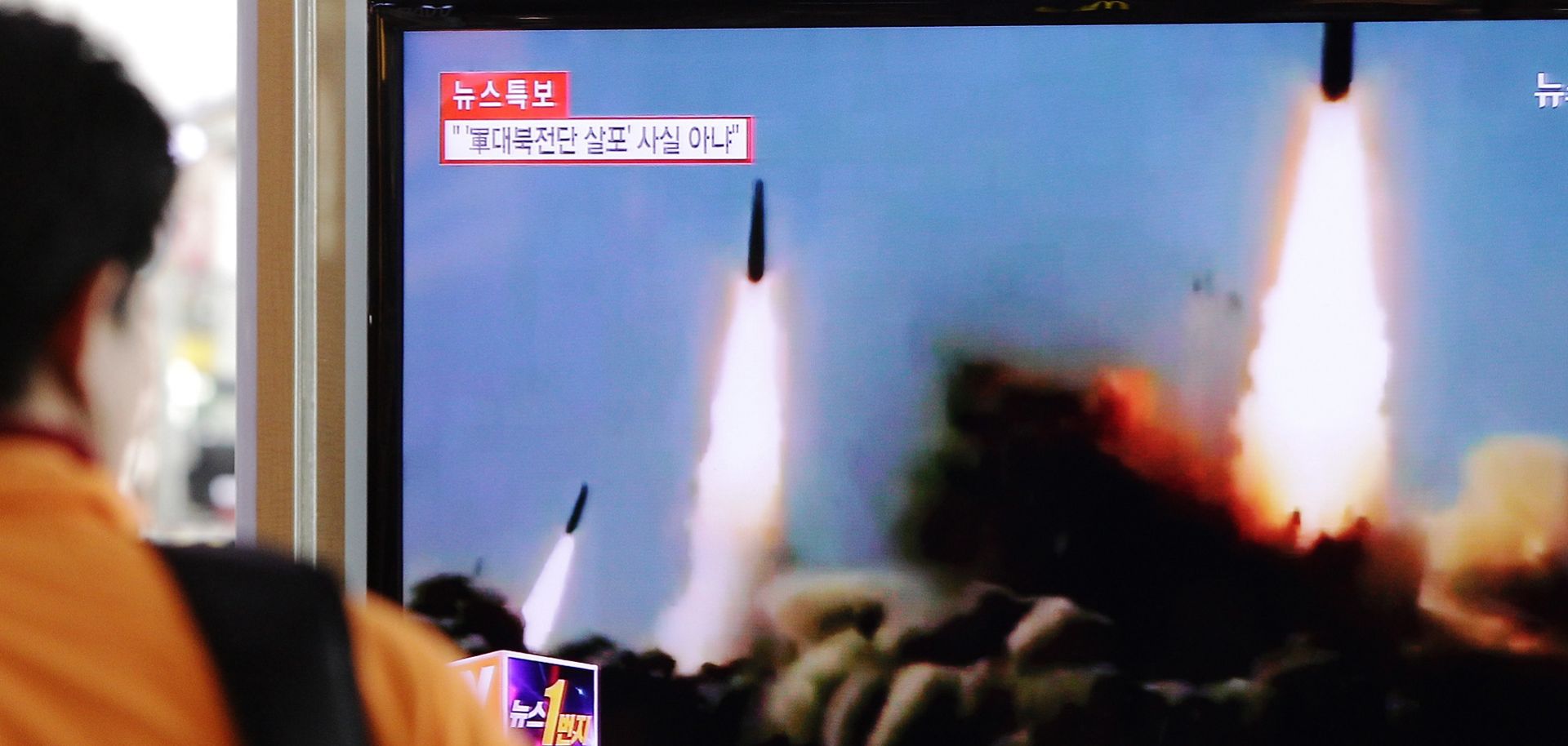ASSESSMENTS
North Korea: The Shortcomings of a Successful Missile Test
May 15, 2015 | 14:38 GMT

(Chung Sung-Jun/Getty Images)
Summary
On May 9, North Korea tested its new KN-11 submarine-launched ballistic missile under the watchful gaze of U.S. satellites, aircraft and observation ships. North Korea’s launch was successful: military personnel ejected the missile from underwater, its engine ignited at the surface and it flew about 150 meters (490 feet) before crashing into the sea. Fully developing this technology would extend the reach of North Korean nuclear missile systems and improve the country's second-strike capability in case its ground-based facilities are taken out. The smoothness of the test and the resulting media attention, however, obscure the major obstacles to developing this capacity. Developing the missile technology is one step, but Pyongyang also needs a suitable ballistic missile submarine of the requisite size, endurance and stealth — something that it does not have and will find challenging to develop.
Subscribe Now
SubscribeAlready have an account?
